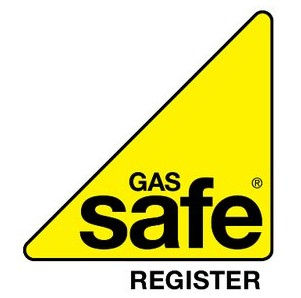The Importance Of Being Earnest (About Gas Safety)
- Ivo @ Plumbingwerx
- Aug 15, 2019
- 4 min read
Updated: Nov 3, 2019
As a customer I appreciate it’s sometimes very difficult to know what being “gas safe” actually means. Most people have no knowledge of the industry, or even what to do if they smell gas.
It’s a complex subject, with a lot of rules and regulations surrounding it. This is why it’s so important to hire someone who knows what they’re doing.
I recently had two different customers, with a similar issue to do with their gas hob.
The first customer, we’ll call her Nice Nikki, wanted me to connect the new hob. Nice Nikki’s previous builder had cut out the worktop for the hob to go into, and the gas pipe had been run up (hopefully by someone on the builder’s team who was Gas Safe registered) to just beneath the hob. On the face of it, everything was ready to go.
The issue was that Nice Nikki’s previous builder didn’t realise that there are minimum distances that need to be met when installing a gas hob, dictated by the manufacturer.
I was unable to fit the hob during the first visit, and Nice Nikki had to call her new builder to correct the issue with the worktop. This issue was corrected, and I returned to fit the gas hob, which now met regulations. But this caused a delay, and meant that Nice Nikki, and her family, were without the ability to use the hob for another week.
The second customer, we’ll call him Naive Nigel, called me because there was a smell of gas from beneath his hob. Luckily there was a builder present, who knew what to do until I arrived.
I turned up, ready to correct the leak, but we had the same issue again; distances meant that the hob didn’t meet regulations. I resolved the issue with the leak, and with Naive Nigel’s permission, I isolated and disconnected the non-compliant hob, until the remaining issue with distances can be corrected. I’ve yet to be called back, but at least I know it’s safe.
The recurring theme here isn’t about gas hobs, but about the importance of using someone who is Gas Safe registered. A competent engineer (hopefully) would have noticed the issues with the distances, and liaised with the builder accordingly.
In the case of Naive Nigel a competent engineer wouldn’t have left a gas leak in the first place! As a gas engineer this is one of the worst things you can do, but also one of the easiest to avoid. It’s a three-minute test to check for leaks, but it was leaking so badly that it was noticeable within 20 seconds. Luckily, this time, there was a happy ending where no one was injured; there were two young children and an elderly lady, when I attended.
None of the above issues were directly the fault of the customers. They can’t be held accountable for the actions of someone else.
But…
I believe there needs to be more responsibility placed on the customer to ensure that the person carrying out the work is legally qualified, and judged competent, to do so. Put simply:
1/ Look on the Gas Safe Register website. Click this text to find an engineer.
2/ Check that they’re competent to carry out the work. Most “civilians” don’t know this, but not every engineer who is allowed to work on boilers is also allowed to work on cookers, or gas fires. Make sure you check what they’re allowed to work on.
3/ When they attend, ask to see their Gas Safe Register card. No one who is honest, transparent, and trustworthy will mind you asking to see their card; guaranteed. For information on what to look for on their ID card, click this text.
4/ If they don’t have their card, for whatever reason, be a little wary. Every engineer should carry their card with them at all times, but sometimes things get lost. If this happens, just check them out again on the website.
ANOTHER NOTE: Unfortunately, I’ve NEVER been asked for my card. Note sure why. Maybe it's a lack of awareness, but I always have it with me. In fact, especially with new customers, I volunteer my card for inspection, and advise them to always feel free to ask me, or anyone else who attends.
“Yes,” I hear you think, “but my builder was the one who arranged for the gas engineer.” So what? Doesn’t matter if it was your butcher, your baker, or your candlestick maker; the same rules apply. You can still check out the person that you’re allowing into your home, to work on your gas appliance/supply. Not only can you do it, but you most definitely should do it. I’ll write it out again:
“No one who is honest, transparent, and trustworthy will mind you asking to see their card; guaranteed.”
In the instances with the customers I had above, a report has been submitted to Gas Safe Register, which will be investigated, and will likely end in prosecutions. We were lucky in both of the above cases, in that nothing dangerous came to pass. I wouldn’t like to take that risk again, though.
We all need to work together to stop illegal gas work. For your own safety, and for someone’s else’s, who may not know any better: stay gas safe.
- Ivo @ Plumbingwerx






Comments